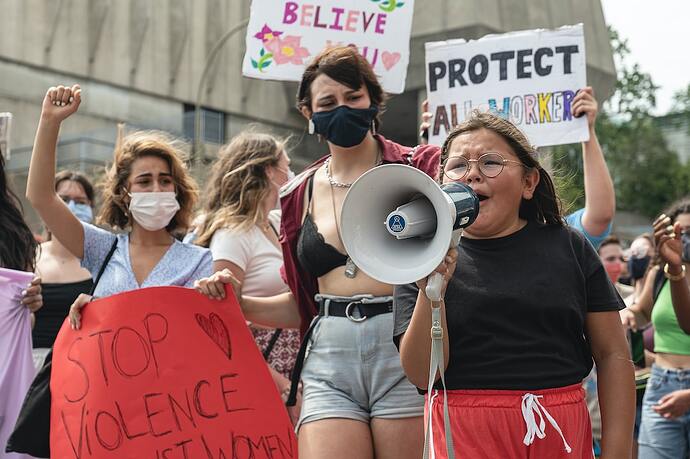The MeToo movement is a global social justice campaign that aims to draw attention to sexual harassment, abuse, and assault. It originated in 2006, but it gained widespread prominence in 2017 following sexual misconduct allegations against Harvey Weinstein, a powerful Hollywood producer. Tarana Burke created the “Me Too” hashtag as part of an effort to raise awareness about sexual assault, particularly within communities of color. In October 2017, actress Alyssa Milano encouraged survivors to tweet “Me too” if they had experienced sexual assault or harassment. Within 24 hours, half a million people had responded. The movement quickly spread beyond social media and led to a cultural reckoning with systemic sexism, harassment, and abuse in workplaces, schools, and communities. It has sparked numerous conversations about consent, power imbalances, and gender-based violence.
The MeToo movement has had far-reaching effects, inspiring millions of women, men, and non-binary individuals to come forward with their own experiences of sexual violence. It has emphasized the need for accountability, empathy, and support for survivors. The movement has also led to numerous high-profile resignations, dismissals, and criminal charges against individuals accused of sexual misconduct, including Bill Cosby, Charlie Rose, and Kevin Spacey. The movement has also inspired new laws and policies aimed at protecting against sexual harassment and abuse in workplaces, schools, and other institutional settings.
The MeToo movement has been celebrated by many as a critical step towards a more equitable and just society, where people can feel safe and confident to speak out against sexual violence. Some critics have raised concerns about false accusations and the potential for the movement to harm innocent individuals. Others argue that the movement could be more inclusive of diverse perspectives and experiences, including those from marginalized communities.
There are several key themes and principles that underpin the MeToo movement. These include:
-
Empathy and solidarity: The movement highlights the importance of listening to survivors with compassion and recognizing that the impacts of sexual violence can be profound and long-lasting. It emphasizes the need for collective action and support for survivors.
-
Power and privilege: The movement draws attention to the ways in which power imbalances can contribute to sexual violence, particularly in cases where individuals abuse their positions of authority or influence. It also highlights the often-overlooked experiences of marginalized communities, including people of color, LGBTQ individuals, and those with disabilities.
-
Consent: The movement reinforces the importance of consent as a key component of healthy relationships and sexuality. It challenges the notion that non-consensual acts are acceptable or inevitable.
-
Accountability and justice: The movement demands accountability for those who commit sexual misconduct, including criminal charges, civil suits, and professional consequences. It also calls for systemic changes to prevent sexual violence, including education, policies, and cultural norms.
The MeToo movement has been impactful in numerous ways, but it continues to evolve and face challenges. Some have criticized the movement for not sufficiently addressing the needs and experiences of people from marginalized communities, including those who are undocumented, incarcerated, or homeless. Others argue that the movement has been too focused on individual cases rather than systemic change.
Despite these criticisms, the MeToo movement has undoubtedly had a profound impact on the way sexual violence is discussed and addressed. It has shone a spotlight on the pervasive nature of sexual violence in society and emphasized the need for empathy, accountability, and solidarity with survivors. It has inspired countless individuals to speak out and take action against sexual violence in their own communities, workplaces, and personal lives. As the MeToo movement continues to develop and change, it remains a powerful force for social justice and change on a global scale.
Disclaimer
6do Encyclopedia represents the inaugural AI-driven knowledge repository, and we cordially invite all community users to collaborate and contribute to the enhancement of its accuracy and completeness.
Should you identify any inaccuracies or discrepancies, we respectfully request that you promptly bring these to our attention. Furthermore, you are encouraged to engage in dialogue with the 6do AI chatbot for clarifications.
Please be advised that when utilizing the resources provided by 6do Encyclopedia, users must exercise due care and diligence with respect to the information contained therein. We expressly disclaim any and all legal liabilities arising from the use of such content.

















